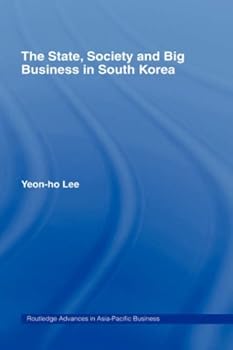

Despite the existence of the so-called chaebol, or big business groups, the South Korean state still retains its relatively strong autonomy in terms of establishing and executing economic and industrial policies. This book examines how the state can execute national policies that are opposed to the interests of social constituents, despite the expansion of social power. The relationship between government and the chaebol provides an illuminating example of this. The author demonstrates how Confucian values, the role of the family and a firm hierarchical tradition have prevented South Korea from developing a modern state on the western model.
ไม่มีความคิดเห็น:
แสดงความคิดเห็น